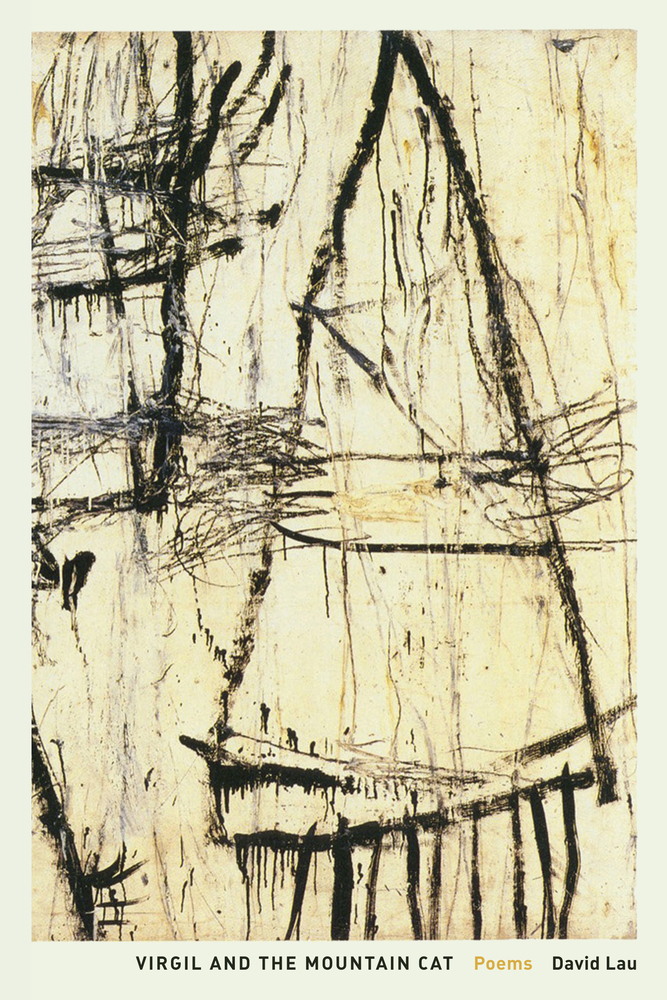Reading David Lau’s first book of poetry can feel like listening to someone from an insane asylum—someone speaking to you earnestly and in confidential tones about things fascinating and unknowable: “The acoustics of our yell surround / children in cattle costumes. Cattle.” There’s something compelling, and at times unsettling, about this. Spend enough time reading his poems and you may start to question certain things. Which is to say, the poetry threatens to start making sense.
Lau’s poems take place at the periphery of consciousness; try to look directly at them, try to explain what they are saying, and they blink away. “The shutters of thunder are forlorn / like the song of the sound of my own voice,” one thought begins, somewhat plausibly, before swerving: “a different / tattooed country.” These are poems that exist in a fun house of connotation, poems that are simultaneously creative and destructive. “You were a total honey / in the marked static’s wild helmet, / pancake.” The pleasure of reading Lau’s work is a distressing pleasure. While his best poems make just enough sense to ward off complete intellectual despair, Lau’s work, in general, tests one’s capacity for negative capability—the ability to exist, wrote Keats, “in uncertainties, Mysteries, doubts, without any irritable reaching after fact & reason.”
The result of Lau’s syntactic and semantic disjunction is a true dérèglement de tous les sens. One reason for this disorientation is that his poems are grounded in—or rather, trapped by—the present, with no appeal to either the textual past or future to provide a meaning-making context. (In one poem, he speaks metapoetically of “that other paradoxical self-negating reversal,” the line sandwiched between “La belle femme skunk fatale / disappeared off the waning coast of whatever” and “but what beautiful curves for a peanut grower / folktale.”) Trapped in the flux of now, Lau’s poems are incapable of making traditional sense. The poems’ present is felt to be discrete, discontinuous, utterly unique—and, as a result, unknowable. But to what extent does “making sense” matter?
To begin with, it’s impossible to make zero sense in an identifiable language. Words are inherently evocative, and patterns, however tentative, will inevitably be found. Meaning will be constructed by the reader, whether the author intended that meaning or not. Consider some of Lau’s neologisms: deschooling, cagelessness, poptastic, suburbatross, aetherlands. Even though these words have no dictionary...
You have reached your article limit
Sign up for a digital subscription and continue reading all new issues, plus our entire archives, for just $1.50/month.
Already a subscriber? Sign in





